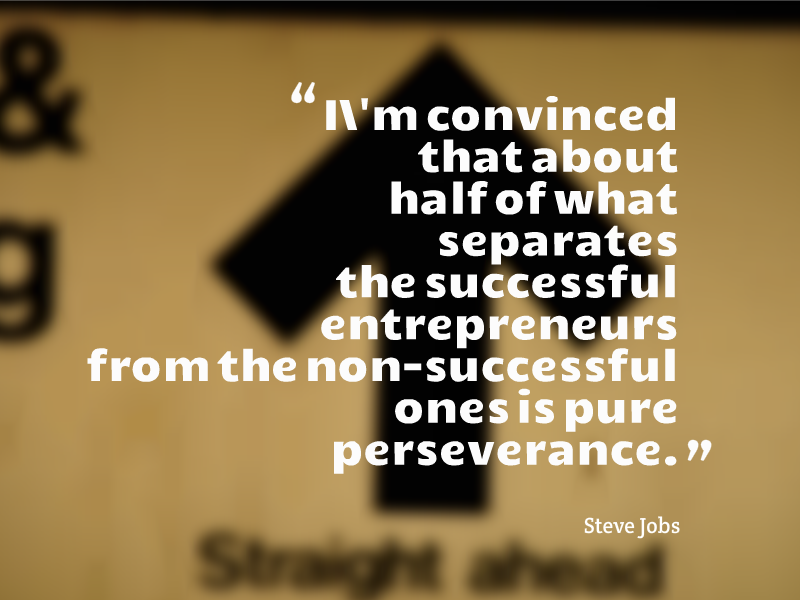What Not To Do When Growing Your Company From A CEO Who s Done Just That
Post on: 15 Май, 2015 No Comment

Don’t rush the hiring process, and four other top tips for growing the right way.
By Les Kollegian
Your company’s growth can feel like a complex equation. Add a consultant here, subtract a client there, divide up this budget and hope for the best. The numbing reality is that the choices we make, more often than not, lead us to unanticipated outcomes.
At Jacob Tyler. we’ve been down the rabbit hole and been forced to choose between the proverbial red and green pill. We know what it’s like to be a small business craving a growth spurt. Now that we’ve experienced the growth, through our success and failures, we’ve stumbled upon fundamental lessons on what not to do. These lessons, as luck would have it, have played a crucial role in building our company. Avoid these five pitfalls for stress-free, steady, and successful growth.
Small businesses often suffer from the chicken/egg syndrome. You don’t have the money to hire until you have the project set and when you finally have the project and money, you don’t have the staff to support the client. What do you do?
Simply put, your people are your brand. You wouldn’t want to devalue your brand, so don’t skimp on the quality of the employees you hire.
You may consider making a quick hiring decision. I won’t say this never works out, but many times, the person you hire, because you’re in a rush, isn’t the right fit for the position you’re trying to fill. Then you’ll spend extra time nurturing this employee to fit the required position. Save yourself the headache and repeat after me: slow to hire, fast to fire.
Instead of solving your problem with a quick hire, develop a hiring process that builds your pipeline of qualified applicants. Keep position descriptions up on your website and have a system in place for when you’re ready to push for new applicants. Then follow a vetting process. Know what you’re looking for, interview and interview again.
Taking this time upfront will save you time later. When you’re looking for that next hire, look for the qualities the previous employee (that quick hire we all regret) was lacking and be patient for the right person to come through your door.
The common denominator with most small businesses is lack of cash flow. Sometimes this can be a recipe for a hiring disaster because your inclination is to bring on a junior level person with little experience because you can get them at the perfect price. Well, you get what you pay for.
At Jacob Tyler, we’ve found that a senior level employee who makes roughly $75,000 a year can do almost six to eight times the work of a junior level employee making $20,000 a year and with less supervision. It’s important to consider the cost savings not only for the cost of work, but the cost of time from management, revisions, and mistakes. In order to grow your business, you need to be doing what you do best and that does not mean spending the majority of the day teaching or fixing unnecessary issues.
Instead, invest in your talent. Why? Because investing in your talent is an investment in your brand. As a brand communications agency, we know the value of a brand and advise our clients to think of their brand positioning as the key element to ongoing success and growth. Your people not only represent your company, but they produce for your company. Simply put, your people are your brand. You wouldn’t want to devalue your brand, so don’t skimp on the quality of the employees you hire.
Handling and allocating expenses is really tough for small business owners. It’s very easy to lose track of where your money is going. Why? Clients don’t always deliver according to your cash flow plans.
As a result, sometimes funds are moved from where they should be allocated to perhaps your credit card debt. Over time, this can spiral out of control making it difficult to recover. As time goes by, you realize you’ve potentially racked up more debt and the money you’re making never seems to make it to the right place including your pocket. Instead of falling into this vicious cycle, focus your attention on developing a budget.
It’s easy to fall into the trap of wanting to be everything to everyone. It makes sense, right?
In order to budget properly, ensure a controller has an eye on your bottom line and prepares monthly financial reports for your review. This type of administrative and financial work won’t necessarily improve your bottom line, but it will help you anticipate financial bottlenecks and pinches ahead of time.
Oftentimes, as small business owners, whether you work alone or have employees, we stress about payroll, vendor payments, bills, and more. Then, the perfect client prospect walks through the door. Why perfect? Because he has money. I can tell you from firsthand experience that just because he can pay, does not mean the business will be profitable. In fact, the wrong client can cost you much more time than money. When meeting with new clients, it’s important to look for the warning signs such as:
- Do they appear high maintenance or require a lot of handholding?
- Do they really understand your business or need too much education?
- Did they have issues with another vendor that is making them switch to you?
- Are they asking for something beyond your core competencies?

While taking on a client will get you the quick pay day, it may cost you far more in time and in the long run, a major loss in profits. Not to mention, this client can waste your valuable time that you should be spending on searching for ideal clients.
Take the time to interview your potential clients in depth and make sure they know what it will be like to work with you. Once they understand, make sure your contracts are iron clad complete with expectations for rounds of revisions, changes in scope and additional requests. Otherwise, these issues will lead to unnecessary additional meetings that distract you from your daily goals.
It’s easy to fall into the trap of wanting to be everything to everyone. It makes sense, right? The more services you offer, the more money you can make. The problem is that you better be good at everything you do. The saying about being a jack of all trades, master of none is not a compliment.
Whether you’re a web designer or a tax attorney, make sure you’re the master of your core strength. This will enable you to be recognized as an expert in your field and help you to build your business brand. Be the best at a few concentrated activities and stay focused on investing in those strengths.
Furthermore, a core strength of your company can and should be innovation. How are you providing your clients with new value? How are you pursuing the next big thing? Stay connected with your clients and continue to listen to what they want and learn how to better serve them through innovation. Discover a blue ocean and you will make the competition irrelevant.
While these five lessons are great examples of lessons that we’ve learned at Jacob Tyler that have allowed us to get to where we are today, part two will provide five additional lessons for CEOs to keep in mind as they strive to grow their businesses.
Look for part two of this story—and more growth advice—on Monday.
—Les Kollegian is the CEO at Jacob Tyler. an award-winning, full-service, brand communications agency specializing in brand development, print collateral, web design, web development, product design and online marketing. Contact Les at les@jacobtyler.com .
[Image: Flickr user Sam Wolff ]














